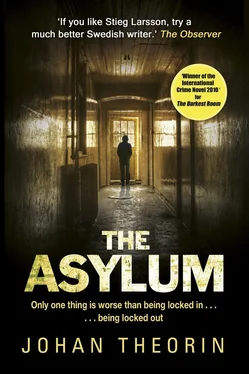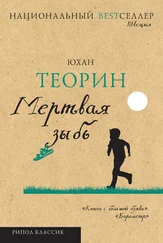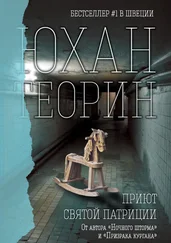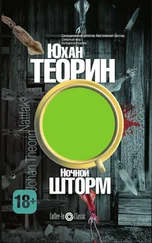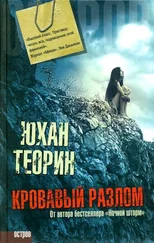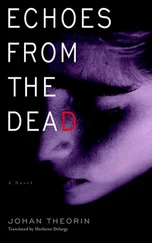Jan has set up his old stereo; he puts on Rami’s album and turns up the volume to drown out the noise of the party. His old favourite comes on: the ballad ‘Your Secret Love’, where Rami sings in her whispering voice:
Go over your memories
until you can see them
floating by on the wind
until you can hear them
Love or just a game
you will always miss
your most secret love
like a lost soul in the desert
The song seems to Jan to be about a love which is impossible. If they ever meet again, he will ask Rami if he is right.
If they meet again — to make that happen he will have to get into St Psycho’s, perhaps through the basement. There is always a way into a building for the person who is brave enough.
He turns his back on the cramped room and looks out of the window.
There is not a soul in sight in the car park behind the apartment block, but it is full of cars. He counts eleven Volvos including his own, seven Saabs, two Toyotas and just one Mercedes. People have come home from work and gone indoors to join their families. Perhaps they are all sitting around the kitchen table, or in front of the TV. Perhaps they are busy with their knitting or their stamp collection.
But Jan is alone.
There — he has allowed himself to think the dangerous word, he has admitted his inferiority. He is alone , he is lonely .
He has no friends here in Valla. That is a cold, hard fact. He has nothing to do.
All he really wants to do is to sit here listening to Rami. But he still has boxes to unpack, and during the course of the evening he finds an old book containing drawings and newspaper cuttings. It’s his diary from when he was a teenager; he used to write in it now and again, but sometimes there would be several months between entries.
He opens the diary, picks up a pen and writes down everything that has happened over the past couple of weeks, letting it all out: the move to Valla, the loneliness, the new job, and the dream that it will lead him to Rami.
He has stuck an old photograph on the front of the book. It’s a Polaroid, slightly faded, but he can still see a blond-haired boy looking up in surprise from a hospital bed with its white sheets. It is Jan himself, aged fourteen.
After lunch on Saturday Jan goes down to the communal laundry room in the apartment block for the first time, and meets an old man. A white-haired neighbour whose beard is equally white is just leaving the room containing the washing machines.
Afterwards Jan realizes he should have spoken to him rather than merely nodding as the man walked past.
The man is carrying an old laundry bag over his shoulder, and as Jan glances at the fabric bag he can see that there are letters printed on it: T ICIA NDRY. There must be more letters, but they are concealed by the folds of the material.
Jan continues on into the laundry room. But suddenly his brain forms the words: St Patricia’s Laundry .
Could that possibly be right? It is too late to check — by this stage the old man has already left the cellar, the door has closed, and Jan is alone with his washing.
When all his clothes are clean and dry he goes back up to the apartment and tries to make some more room, shifting boxes out of the way, cleaning up and pushing together his landlady’s furniture. Then he eats yet another lonely meal at the kitchen table as darkness falls outside.
And after that? He goes into the living room and switches on the old TV. He sees dolphins swimming along beneath the surface of the water; it seems to be some kind of documentary. He settles down and learns that dolphins are nowhere near as nice and peace-loving as many people think.
Dolphins hunt in packs and often kill seals and other creatures , says the presenter.
Jan switches off the television after half an hour. The apartment is silent — but sounds are seeping in from elsewhere. Somewhere in the building someone is having another party. He can hear the thump of music, the loud slam of an outside door, loud voices and laughter.
Jan thinks about doing a little more drawing on The Secret Avenger; he is getting close to the end. Soon his hero must defeat the Gang of Four. Annihilate them.
The party continues, the laughter gets louder. In the end Jan puts on the stereo to drown out the noise, and gazes out of the window.
I ought to get myself a hobby , he thinks. Or join an evening class .
But what would he like to do? Learn French? How to play the ukulele?
No . After a while he switches off the stereo, puts on a black jacket so that he looks grown up, and goes out.
It is cold outside, and the street lamps have come on. It is quarter past eight. He can hear more music out here, echoing between the buildings. It’s party time — for all those who have friends.
Come down to Bill’s Bar , Lilian had said. I hang out there all the time .
Jan sets off towards the town centre. He wants to get to know his new home town, but what is there to see? Valla is a medium-sized Swedish town, with no great surprises. He passes a pizzeria, a Pentecostal church, a furniture store. A few bored teenagers are sitting around a table in the pizzeria; everywhere else is closed and in darkness.
A footbridge takes him over the motorway, and Jan is almost down by the harbour. He would really like to go down to the quayside to feel the evening breeze coming off the dark sea, but the area is barricaded with gates and a fence which is almost as high as the wall around St Psycho’s.
No, not St Psycho’s. St Patricia’s . Jan must stop using the hospital’s nickname, otherwise he’s going to end up saying it out loud sooner or later.
Beyond the fence there are a few small streets that could be regarded as the town’s harbour area, but there is nothing romantic or adventurous about them. There are just low industrial units surrounded by cracked tarmac.
But there are several cars parked in front of one of the wooden buildings on the side nearest the town, and a welcoming red sign above the entrance says BILL’S BAR.
Jan stops in front of the sign. Visiting bars isn’t something he enjoys. But even the loneliest of creatures is welcome in a bar as long as he behaves himself, so in the end he pulls open the heavy wooden door and walks in.
It is dark and hot inside; there’s the heavy beat of rock music and muted voices. Shadows moving around one another, the sense that everything could just tip over. Bars are a kind of playroom for adults only.
All good children are fast asleep by now.
Jan unbuttons his jacket and looks around. He thinks of a line from a song by Roxy Music about loneliness being a crowded room. He can’t remember when he last walked into a bar alone, because the feeling of being an outsider is always overwhelming in a room full of strangers, chatting and laughing together. Bill’s Bar is just the same. Jan doesn’t believe that everyone in there is the best of friends with everyone else, but that’s how it seems .
He pushes his way over to the bar past heavy bodies that are unwilling to move. A lot of people have gathered in front of a small stage right at the back, where a local rock band is playing.
Jan hands over a note at the bar. ‘A low-alcohol beer, please.’
The classic trick for a lonely person is to chat with the bartender, but he has already whisked away Jan’s money and moved on.
Jan takes a couple of sips and feels slightly less isolated. He has company now — a glass of beer. The drinker’s best friend. But he has hardly ever consumed alcohol, never got drunk — should he try it tonight, just to see what happens?
Читать дальше
